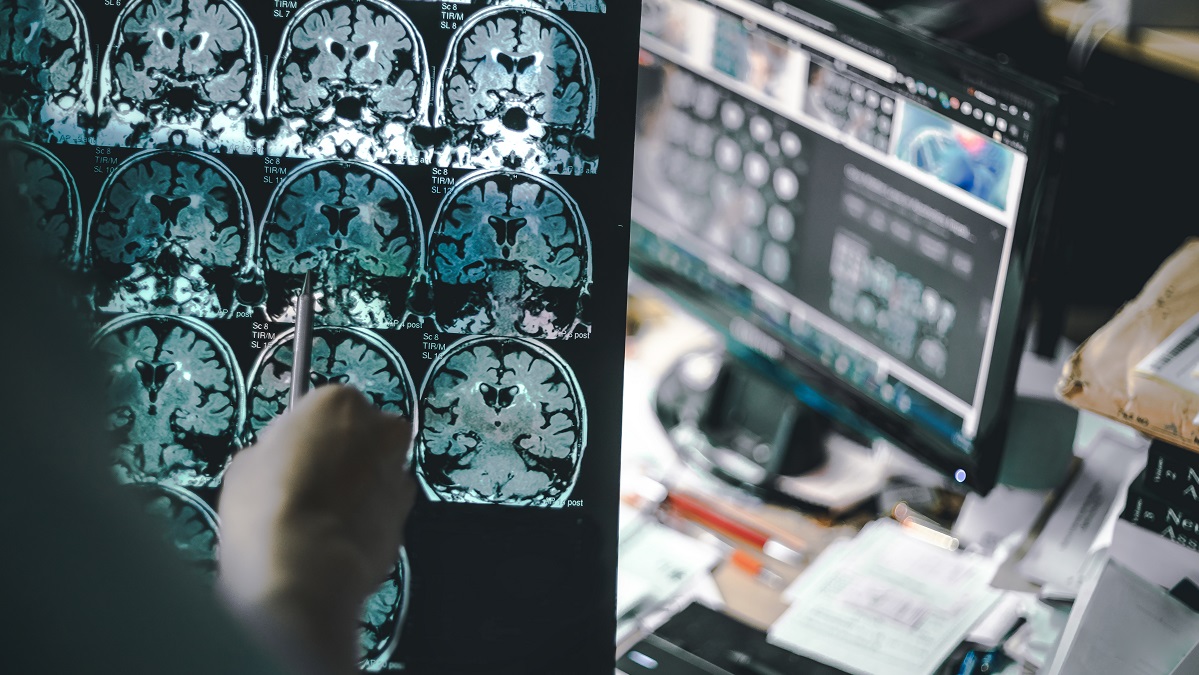A new form of treatment could be on the horizon for those at a greater genetic risk of developing Alzheimer’s disease, thanks to new research.
Researchers have developed a drug that can potentially delay the effects of Alzheimer’s disease by inhibiting a gene strongly associated with its onset. The discovery offers hope to those with a strong family history of the disease.
As we grow older, its inevitable that our bodies will begin to break down and not work as well as they once did.
This goes for your brain too, and ageing brings with it a number of different ways for your cognitive abilities to decline, including the most common form of dementia, Alzheimer’s disease.
Alzheimer’s is the most common form of dementia in Australia, with just over 400,000 people living with the disease, according to the Australian Institute of Health and Welfare (AIHW).
This is equivalent to around 15 people per 1000, which increases to 84 per 1000 for people aged 65 and over. Nearly two-thirds (63 per cent) of Australians with dementia are women.
Getting ahead of Alzheimer’s is imperative. Once the decline becomes obvious, it’s often too late to begin any meaningful treatment.
It’s why genetic testing plays a crucial role in detecting Alzheimer’s markers as early as possible, so doctors can help patients successfully manage the condition.
What can genes tell us about Alzheimer’s?
Actually, quite a lot. Back in 2018, researchers from the University of Arkansas demonstrated a gene known as apolipoprotein E, or APOE for short, has a significant influence on Alzheimer’s.
In particular, the one variant of the APOE gene, known as APOEε4, was found to be present in between 40 and 65 per cent of Alzheimer’s cases.
That study showed those with an APOEε4 gene are less able to clear waste products from the brain and more susceptible to building up toxic levels of amyloid and tau protein, which is the hallmark of Alzheimer’s disease.
Essentially, the APOEε4 blocks genes responsible for autophagy, a process that breaks down and clears old cells from your body. Due to this blockage, the brains of Alzheimer’s patients are unable to clear old cells and they build up to dangerous levels.
A gene-based treatment
Now, the same team of researchers has used the link to identify a molecule that binds to APOEε4 and inhibits its harmful effects.
The researchers believe this molecule can form the basis of a new treatment for Alzheimer’s. The team have published their findings in the journal Communications Biology.
From the findings, the group has develop a drug candidate known as CBA2, which is currently in preclinical trials.
Professor Sue Griffin, who led both research teams, says she hopes her team’s research will put a significant dent in rates of Alzheimer’s disease.
“Our hope is that people who have one or two copies of APOEε4 will one day take the drug regularly throughout their life and significantly reduce their risk of developing Alzheimer’s disease,” Griffin said.
Prof. Griffin’s team is advancing its innovative work with a recent five-year, $AU3.88 million grant from the US National Institutes of Health (NIH).
Is there a history of Alzheimer’s in you family? Would you take this drug to reduce your risk? Let us know in the comments section below.
Also read: Link between visceral fat and early Alzheimer’s revealed


Yes I would take it . I have a family history of Alzheimer’s disease ,in my family my mother her mother my father his mother, two of his sisters and a brother all have passed away.
Yes would definately take it as my mum has just past with dementia and also her brother and her mother. Now my mother in law as been diagnosed with dementia as well so it’s all around me
I would take it. I have just been diagnost with possible early signs of diamentia and I am a fit 88 year old.
My Mother was diagnosed 3 years ago with dementia after she began to lose things. She would accuse someone of stealing, even in the night, she was on medication but her symptoms progressed to anger and short fuse over little things. This was a woman who was soft spoken, slow to anger and kind. It was such a change for us to try to manage a whole new way of living. She is 82, I’m 66 and I felt so stressed sometimes. I didn’t know what each day will start with. I retired in April that year and was with her 24/7. I have been researching for a while now, and I think this has helped. Have you ever come across Natural Herbs Centre Dementia Ayurvedic Protocol (just google it). It is a smashing one of a kind product for reversing Dementia completely.6 months into treatment she has improved dramatically. the disease is totally under control. No case of dementia, particularly the hallucination, weakness, and her mood swings. I Just wanted to share for people suffering from this horrible disease